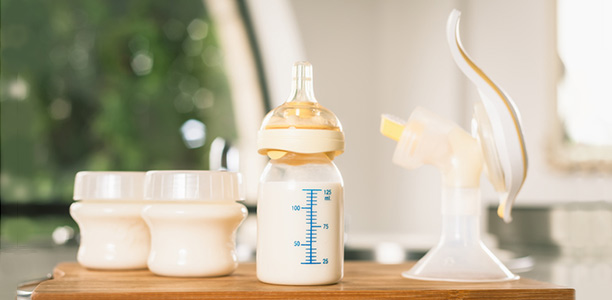A world first study has found that women with diabetes in a low-risk pregnancy can safely express breast milk in late pregnancy, with the study dispelling concerns that the practice could cause harm to babies.
The landmark research, published in The Lancet, was led by researchers at La Trobe University, along with the Royal Women’s Hospital and Mercy Hospital for Women, all located in Melbourne. The study included 635 Victorian women with diabetes in pregnancy who were at low risk of other complications.
Two previous small studies into antenatal breast milk expressing suggested it could increase admissions to the neonatal care unit (NICU) and the chance of early birth. However, the current study was much larger and more rigorous and found no association between antenatal expressing and early birth or NICU admissions.
The findings pave the way for clinicians to recommend that low-risk pregnant women with diabetes in pregnancy express and store breast milk to give to their newborns in the event they develop hypoglycaemia (low blood sugar levels) – a condition that can cause serious health problems in newborns.
Lead researcher Professor Della Forster, from La Trobe University’s Judith Lumley Centre and the Director of Midwifery and Maternity Services Research at the Royal Women’s Hospital, said the ground-breaking research had attracted international attention.
“The practice of antenatal expressing has become increasingly widespread, especially among pregnant women with diabetes, which occurs in about one in ten pregnancies,” Professor Forster said.
“Many health professionals have been encouraging women, most often those with diabetes (pre-existing or gestational) to express and store their breast milk in late pregnancy, however there has been a lack of evidence to guide this practice.
“For the first time, we have evidence that shows in this low-risk population, antenatal expressing is safe and does not cause harm to babies.
“Our research fills a significant global gap in knowledge and provides much-needed guidance to pregnant women around the world and those providing maternal care.”
Sue Walker, Professor of Maternal Fetal Medicine at the University of Melbourne and Director of Perinatal Medicine at Mercy Hospital for Women, said the study provided an eagerly anticipated answer to a common and important clinical problem.
“Despite widespread enthusiasm for antenatal expressing, studies to date had suggested potential for harm,” Professor Walker said.
“This study put these fears to rest, providing a reassurance that antenatal expressing of breast milk is safe for women at low risk.
“These findings do not apply to higher risk women, but provide invaluable data that could be used for further research.”
Anita Moorhead, La Trobe University co-researcher and senior lactation consultant at the Royal Women’s Hospital, said in the current study more than 40% of babies whose mothers had diabetes in pregnancy developed low blood sugar levels soon after birth.
“Breast milk stabilises a baby’s blood sugar levels more effectively than infant formula, but many women with diabetes experience a delay in their milk coming in,” Ms Moorhead said.
“Our study found that when women express from 36-37 weeks of pregnancy, most will produce milk ahead of their birth and are then able to provide that extra milk if needed once their baby is born.”
Women in the study expressed an average 20 times before birth and on average produced 5mls of milk in total for the whole time of expressing.
“The research showed that not only is expressing breast milk before birth safe, but it increased the proportion of mothers who exclusively breast milk fed their child within the first 24 hours of birth and up to seven days after birth,” Ms Moorhead said.
(Source: La Trobe University, The Lancet)










